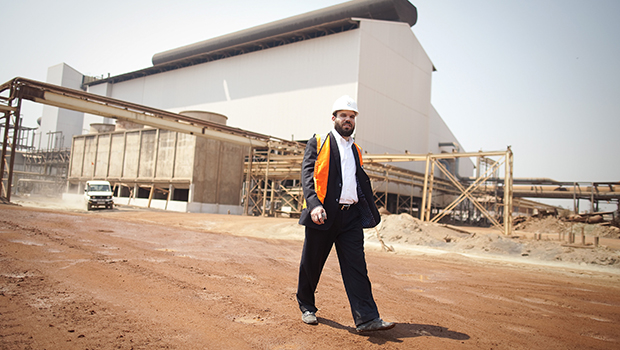Dan Gertler was first frozen out of the U.S. financial system in 2017 after Paradise Papers exposed how he helped secure lucrative mining rights for commodities giant Glencore.

The United States has reimposed sanctions on Israeli billionaire Dan Gertler months after he received an unexpected reprieve after lobbying President Donald J. Trump’s administration.
The United States first froze Gertler, a mining mogul, out of the U.S. financial system in 2017, weeks after the International Consortium of Investigative Journalists’ Paradise Papers investigation. Officials accused Gertler of having “amassed his fortune through hundreds of millions of dollars’ worth of opaque and corrupt mining and oil deals in the Democratic Republic of the Congo (DRC).” The sanctions were extended in 2018. Gertler denies wrongdoing.
In January, the outgoing Trump administration granted a license that unfroze some of Gertler’s money held in U.S. institutions, including Deutsche Bank, and allowed his companies to re-enter the financial system. The reprieve angered civil society who have long reported on Gertler’s alleged corruption. It surprised U.S. officials, according to a New York Times investigation of the lobbying, which involved Alan Dershowitz, who later served as a lawyer to President Trump.
Last month, journalists reported that companies linked to Gertler bypassed U.S. sanctions with the help of one of Central Africa’s largest banks. The investigation was organized by the Platform to Protect Whistleblowers in Africa, which previously provided ICIJ with more than 700,000 documents that formed the basis of the Luanda Leaks investigation.
As early as 2001, the United Nations linked Gertler to the “illegal exploitation” of valuable DRC resources. Gertler, who has close ties to former DRC President Joseph Kabila, owned a company that received a lucrative diamond-mining monopoly, U.N. reports alleged. Gertler agreed to exchange diamonds for the delivery of weapons to Congolese armed forces, according to the U.N. panel. Gertler rejected the findings and said his company complied with its obligations.
In 2017, as part of the Paradise Papers investigation, ICIJ and media partners revealed how Swiss multinational Glencore, one of the world’s largest commodity traders, discussed appointing Gertler to “negotiate with the DRC authorities” after officials pushed back on a deal for valuable copper deposits. The revelations showed Glencore provided a $45 million loan to a Gertler-controlled company while the tycoon helped Glencore seal a deal with the DRC government.
Glencore denied wrongdoing and said that its background checks on Gertler were “extensive and thorough.” Responding to ICIJ’s questions, Gertler hired lawyers in three countries and sent a 33-page letter that claimed accusations of criminal behavior were false.
ICIJ By Will Fitzgibbon